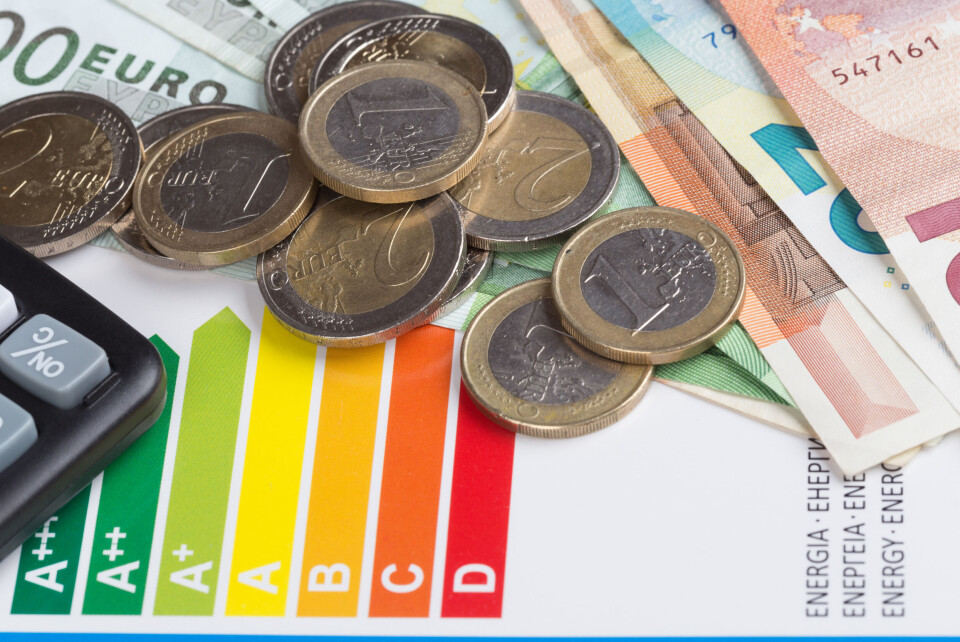-
Group purchase offer for wood pellets launched by French consumer association
Highly competitive prices pledged with applicants given a quote they can choose to take up (or not)
-
French energy vouchers: 2025 date confirmed – and it is much later than usual
Five million people are eligible for the physical voucher, which can be up to €277
-
How much are gas prices in France rising in April - and why?
It comes after six consecutive monthly rises. Try these tips to reduce your bills
How you could save hundreds of euros on annual energy bills in France
Energy firms say a few simple actions could save you between 10 and 15%

It is generally agreed that you can save money on your energy bills by optimising your use of household appliances and by unplugging standby devices, but by how much?
The Connexion contacted two of France's main energy providers to find out more.
Here's what they said...
Read also: UK and French mayors hold post-Brexit meet-up on energy and mobility
How can I save money on my energy bills in France?
Voltalis, a French company that sells an electric heating system which can be controlled remotely, told The Connexion their solution helps members save up to 15% on their energy bills.
Likewise, multinational energy-provider Engie has made available studies on helpful tricks for lowering energy consumption, which show that switching off devices left on standby could save an average of 11% on bills.
Combining both solutions could help save from €330 to €500 per year, depending on the size of the household.
Reducing energy consumption has been a key priority of suppliers and government policy in recent months, as France is affected by the rise in global market rates and the threat of winter shortages caused by tensions relating to the war in Ukraine.
Read more: Heating in flats, solar panels, price rises: French government Q&A
Read more: Electricity shortage in France: Will there be power cuts this winter?
The government has announced that the bouclier tarifaire (price cap) on gas and electricity prices which was implemented in autumn 2021 had cost the state €24billion as of September 1, 2022.
However, Prime Minister Élisabeth Borne has also stated that regulated gas and electricity prices are to be capped at a 15% rise in France in 2023, and this has been confirmed in the projet de loi de finances budget.
Read more: Regulated French gas and electric bills capped at 15% rise in 2023
“An electric heating system combined with a hot water tank represents 77% of a household’s energy consumption,” said Olivier Dupuy, director of communication, digital and marketing services at Voltalis.
“This is where you can work out how to reduce your energy bills,” he added.
Voltalis’ remote heating system applies to households that use electricity only and gives full data on its consumption, allowing members to see and monitor their personal usage.
Household energy systems in France are split roughly into thirds, with one third being full electric, the second powered by gas and the last by other energy sources such as heating oil.
Voltalis offers an app which can help customers to control their usage. Users can reduce their consumption when they are out of the house or asleep, and set a time for the heating to come back on.
Voltalis members have reported saving between €250 and €300 on average per year in energy bills, but some households have seen their bills slashed by €500, Mr Dupuy said.
He added that studies have suggested that people tend to consume less when they have detailed personal knowledge of how their usage affects their bill.
“You do not deprive yourself of energy,” he said, but rather consume in a smarter way.
Some may say that energy suppliers looking to make a profit will never help people to significantly reduce their consumption, but Mr Dupuy responded that technological tools allow customers to use the energy more intelligently than under past decades.
Read also: 'Automatic water heater switch-off could save France from blackouts'
€80 from electrical items on standby
Households not powered by electricity can look out for other solutions to lower energy consumption such as turning off devices which would normally be left on standby.
Devices on standby have been estimated to cost 11% of a household's total yearly bills, or around €80, by the French agency for ecological transition, Ademe.
In concrete terms, television cathode-ray tubes, multi-function printers, routers, game consoles and DVD players each consume between 30 kWh and 70 kWh per year while on standby, according to a 2016 study from the Swiss government energy office.
Engie has equally advised its clients to unplug as often as they can. The unplugging of electrical items could save up to 250kWh per year according to another study by the Ademe.
Ademe also recommends unplugging one’s WiFi box instead of the washing machine, as the former consumes more than 200kWh per year, while the latter consumes 100kWh.
A plugged-in dryer, however, can consume around 600 kWh per year, Engie warned, advising customers to use theirs only in winter if possible, or favour longer cycles with low temperatures.
Related articles
How to check when electricity usage is under strain in France
Stop lit-up advert screens and private jets, urge French campaigners
























